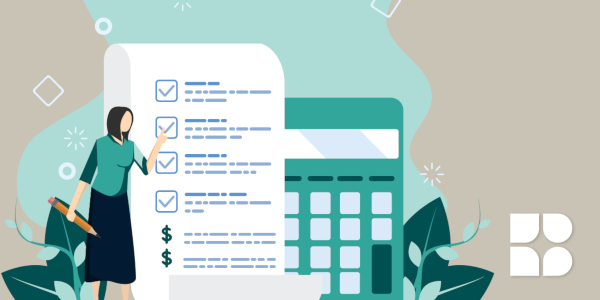Here’s how to run your personal budget
 The last two blog posts have been about overcoming objections to starting a personal budget and strategies to use. This week, we’ll delve into how often you should review your budget, the technology to implement one, and a handful of other resources to help you gain financial stability.
The last two blog posts have been about overcoming objections to starting a personal budget and strategies to use. This week, we’ll delve into how often you should review your budget, the technology to implement one, and a handful of other resources to help you gain financial stability.
Let’s go!
How often should you look at your budget?
Here’s a question that spawns plenty of debate in personal finance circles. Too often, and you risk burnout. Too little, and you lose control.
The answer lies in the strength of your financial situation, the budget strategy used, and how many people are involved in the budget.
If you keep a traditional or zero-based budget, reviewing it every week for about 10 minutes may be wise. That’s because these budgets are more granular, tracking every dollar as it comes in and out. And that type of specificity is easier to do more frequently.
If you keep a 50/30/20 budget (or some variation), you may get away with only reviewing it every month. However, if you are on a budget with other people, like a spouse, the situation is more dynamic, and a quick weekly review may be in order.
The same holds for a “no budget” budget.
If your financial situation is particularly stable, or you tend to operate off of larger income windfalls, then you may be able to get by with quarterly reviews.
Reviewing a budget daily is rarely a good idea, no matter how dire your situation is. This can lead to worry and burnout, causing you to give up budgeting entirely.
Annual Assessments
No matter how often you review your budget, it is wise to step back at the end of the calendar year and assess progress on goals. It’s also an excellent time to consider potential changes in the upcoming year and adjust your budget as necessary.
Tools for tracking your budget
It’s no secret there’s a growing body of software and apps that do most of the heavy lifting for you when it comes to personal finances.
Most banks offer online banking services to track transactions, and apps like Mint, You Need a Budget, and Every Dollar keep popping up.
And who knows what AI will bring to the party in the next few years?
But there’s still room for spreadsheets. Microsoft Excel and Google Sheets let you customize your budget and are very flexible.
But what if you aren’t even sure what your expenses are? Again, the internet saves the day with tools like the Consumer Financial Protection Bureau’s “Budget Worksheet.”
This tool will help you track your spending to use some of the other technologies more effectively.
Budget Resources
Tools are great, but sometimes you need budgeting advice from a human.
One of the easiest places to start is with books. Most are available at your local library for free; many have become classics that stand the test of time.
Books like “The Millionaire Next Door” by Thomas J. Stanley and William D. Danko; “Your Money or Your Life” by Vicki Robins, and “Secrets of the Millionaire Mind” by T. Harv Elker are just a few worth looking into.
You can also find in-person help with financial literacy classes offered at many community centers and local libraries. If you can’t find one in person, try this list of online options from U.S. News and World Report.
The Bottom Line
It’s not enough to talk about budgeting; it must be done to secure your financial future. It requires a small but ongoing commitment to keep practicing and learning. But by regularly reviewing your budget and using the resources listed here, you’ll be on your way to financial stability.